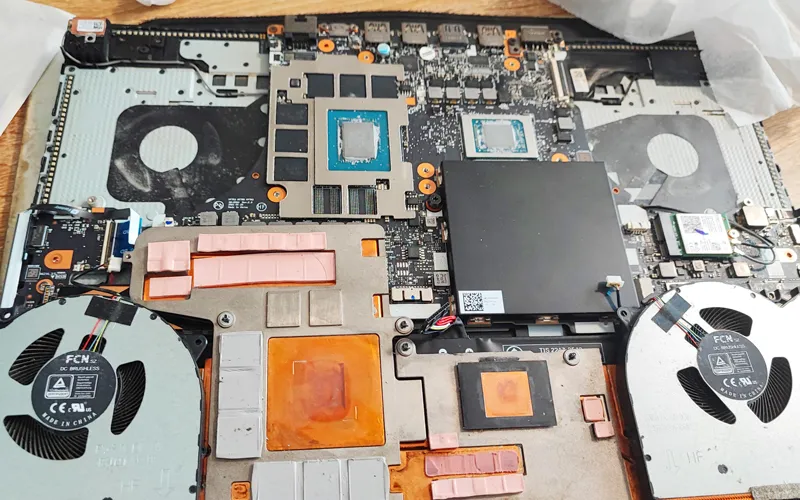Thermal compound pads, also known as thermal pads or thermal interface pads, are used in laptops for several reasons:

Heat Transfer: Laptops generate heat during operation, primarily from components like the CPU and GPU. The thermal pad acts as a medium for transferring heat from these components to the cooling system, which typically consists of heat sinks and fans. The pad fills the microscopic gaps between the component and the heat sink, ensuring efficient heat transfer.
Easy Application: Thermal pads are pre-cut, pre-sized (thickness usually ranges from 0.5mm ~ 2mm). This makes them convenient to use in laptop manufacturing as they can be easily placed on the components without the need for manual application of thermally conductive adhesives. The uniform thickness of the pad helps ensure consistent heat transfer.
Electrical Isolation: In laptops, there are often adjacent components or circuitry that should be electrically isolated from each other. Thermal pads are non-conductive and provide electrical insulation between components, preventing the possibility of accidental short circuits.
Vibration Damping: Laptops are portable devices that can be subjected to movement and vibrations. Thermal pads not only help with heat transfer but also provide a cushioning effect. They can absorb some of the vibrations and shocks, reducing the risk of damage to delicate components.
Simplified Maintenance: The use of thermal pads simplifies the process of laptop maintenance and repairs. When disassembling a laptop, the thermal pads can be easily removed along with the heat sinks. This allows for straightforward replacement or reapplication of thermal pads when necessary.
If you would like to learn more about AOK performance thermal materials, please visit our website at www.aok-technologies.com
